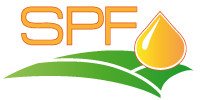Testing
- Efficacy
- Crop safety
- Residues
- Selectivity on bees and beneficials
- Large scale studies
The Testing
A Plant Protection Product must authorized to be placed in the market. This authorization is commonly known as registration and is represented by the approuval of the Product label by the National Authority competent for each Member State of the EC. In order to obtain the registration of a product, the producer must supply a dossier of documents containing technical information to demonstrate that the product is effective for the target activity and safe for the environment, the human and animal health.
The technical information is given through a large amount of studies such as chemical, chemical-physical, toxicological, eco-toxicological and agronomical studies that must be carried out in accordance with standard and official methodologies by Testing Facilities authorized by the competent authorities of the EC Member States.
S.P.F. is a Testing Facility authorized to perform biological studies
- on the efficacy of Plant Protection Products,
- on their selectivity towards the target crops, the adjacent crops and the environment
- on the presence of residues of Plant Protection Products in the treated crops.
S.P.F. is officially authorized to carry out efficacy and crop selectivity studies (Good Experimental Practice or GEP) by the Italian Ministry of the Agricultural and Forestry Policies.
S.P.F. is also authorized by the Italian Ministry of Health to carry out residue studies as well as selectivity studies on the bees and beneficials arthropods (Good laboratory Practice or GLP).
The efficacy studies are aimed to demonstrate the activity of a product at several dosage rates on the crops and on the pests according to the authorization label. The experimentation is carried out by the technicians of S.P.F. according to the official methodologies (EPPO or CEB) in order to supply data reliable, reproducible and comparable to those supplied by other Testing facilities in Italy and in the EC.
The crop safety studies are aimed to demonstrate that a product at the claimed dose and eventually also at higher doses do not cause adverse effects on the target and adjacent crops and on the subsequent crops (rotational crops). S.P.F. carries out these studies according to the official methodologies (EPPO or CEB) selecting crops and agronomical conditions suitable to evaluate with safety the selectivity of the product.
The studies on selectivity towards bees and beneficial arthropods are aimed to verify the eventual adverse effect of the plant protection products. S.P.F. carried out these studies in field and semi-field on honey bees and predatory mites according to the official experimental methodologies (EPPO or CEB).
The residue studies are carried out applying the product according to the expected label instructions of the use of the product on the crop and to collect samples to be analyzed in laboratory for the determination of the residues of the active ingredient or of its metabolites . Among the residue studies are included also the soil dissipation studies that are done by applying the product on the bare or cultivated soil and sampling soil at different depth in order to determine the presence of residues in the different soil layers at different times after the application. S.P.F. carried out these studies according to the Good Laboratory Practice applied to the field and according to specific application and sampling methods for each crop and condition.
At the end of each study, the recorded data are described and discussed in a final report that will be then used to prepare the registration dossier.
